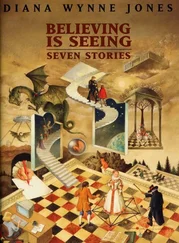d) That much is true of classical (i.e. pre-quantum) state space theory, even though it adds nothing beyond Newton’s original laws. The quantum version of the theory, on the other hand, requires that actions over all possible worlds be brought together in a calculation yielding the probability that any one state of affairs will eventuate. As Feynman puts it, ‘It isn’t that a particle takes the path of least action but that it smells all the paths in the neighbourhood and chooses the one that has the least action…’ The picture is reminiscent of Leibniz’s ‘best of all possible worlds’.
7. Possible-world theory has come in for serious study in recent decades both by philosophers and physicists. For impressively technical reasons that are likely to leave lay readers nonplussed, David Lewis (Plurality of Worlds) posited that all possible worlds really exist and are no less real than the one we live in. Such notions are the subject of current philosophical research, under the rubrics of modal realism and actualist realism. Among physicists, Hugh Everett launched the many-worlds interpretation of quantum mechanics in the late 1950s, since which time it has slowly but steadily garnered support. A particularly eloquent latter-day treatment can be found in David Deutsch’s The Fabric of Reality.
8. Kurt Gödel (1906–1978) who early in his life became known as ‘the greatest logician since Aristotle’ because of his astonishingly original work on the foundations of mathematics, devoted much of the second half of his life to the development of a rigorous metaphysical system that was to be based upon the work of Leibniz, with whom he had a fascination that became notorious.

Kurt Gödel.
Gödel was a strong mathematical Platonist who thought in a serious way about the notion that the entities that are the subject matter of mathematics really exist, though not in our physical universe, and that when we do mathematics we in some sense perceive those entities. An almost painfully meticulous scholar, he was well aware of Kant’s objections to Leibniz’s metaphysics, and understood that those objections would have to be dealt with in order for him to make any progress. According to his friend and biographer Hao Wang, Gödel discovered the works of Edmund Husserl (1859–1938) in the late 1950s and devoted much of the remainder of his life to studying them. He felt that Husserl had solved many, if not all, of the metaphysical problems that Gödel had set for himself, including doing away with Kant’s objections to Leibniz’s work. Husserl is prolix, prolific and infamously difficult to read (even Gödel complained of this) and so a reader of sub-Gödel IQ, eyeing a heap of Husserl translations on a table, might despair of ever putting his finger on the passages that Gödel is thinking of. Fortunately, Hao Wang did us the favour of listing the specific Husserl books that Gödel most admired. One of them is Cartesian Meditations, based on a series of lectures that Husserl delivered late in his career. In the fifth and last of these, Husserl gets around to mentioning, in an approving way, Leibniz and monads. Husserl has come round to Leibniz’s way of thinking, but he has got there by taking a different route, pioneered by Husserl, through phenomenology – the premises and development of which I’ll spare the reader. Since Gödel’s death, mathematical Platonism has come in for serious study both by philosophers such as Edward N. Zalta, a metaphysician at Stanford University, and scientists such as Max Tegmark, an MIT cosmologist. Zalta and Tegmark (like Deutsch) have been influenced by David Lewis’ work on modal realism. Beginning from different premises, they have arrived at markedly similar approaches.
None of these latter-day echoes of Leibnizian thinking has generated traceable, exact results in the same way that, for example, Newtonian mechanics was able to predict the orbit of the Moon. If such a thing happens in the future – if, for example, the practitioners of loop quantum gravity use their theory to make predictions that are verified by experiment – then credit will have to go to them and not to Leibniz, who could never have imagined such a science. It’s not the point of this chapter, in other words, to argue that Leibniz was right, much less that Newton was wrong. Leibniz was not even doing science as we now define the term. My conclusions are two. First of all, that the infamous duel between Newton and Leibniz – which was only superficially about who had invented the calculus – came back from the dead a hundred years ago to exert remarkable influence over the course of modern science. Secondly, that Leibniz’s most fundamental assumption, namely that the universe makes sense and that the human has the power to make sense of it and that, consequently, pure metaphysics is no waste of time, remains perhaps the central question of all science. In 1960, Eugene Wigner wrote a paper, The Unreasonable Effectiveness of Mathematics in the Physical Sciences, in which he addressed the nearly miraculous way in which pure mathematics – seemingly a product of human cognition, and nothing else – predicts the behaviour of the physical world. The examples cited by Wigner would have made sense to Leibniz. Leibniz, however, would have been baffled by Wigner’s use of the adjective ‘unreasonable’ in the title of his paper. Wigner was a modern: a product of a sceptical age. He was uneasy (or felt obliged to pretend to be uneasy) with the philosophical implications of the way in which the physical world answered to mathematics. This unease could not have been more alien to Leibni z, who, during his long philosophical career, questioned many things that would have been easier to leave alone, but believed, with a kind of medieval serenity, in the reasonableness of Creation.
*This perennial theological chestnut seems to have occasioned some soul-searching for Newton as well, since he risked serious trouble by semi-openly espousing the Arian heresy, which denies the Trinity.
Конец ознакомительного фрагмента.
Текст предоставлен ООО «ЛитРес».
Прочитайте эту книгу целиком, купив полную легальную версию на ЛитРес.
Безопасно оплатить книгу можно банковской картой Visa, MasterCard, Maestro, со счета мобильного телефона, с платежного терминала, в салоне МТС или Связной, через PayPal, WebMoney, Яндекс.Деньги, QIWI Кошелек, бонусными картами или другим удобным Вам способом.













